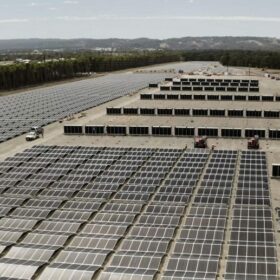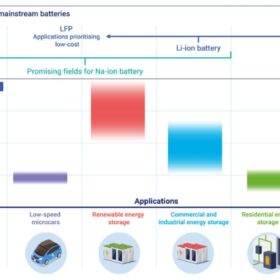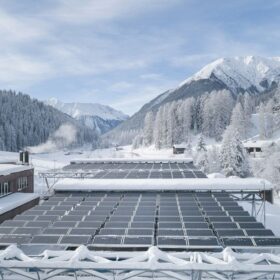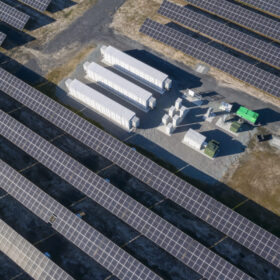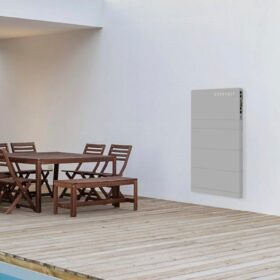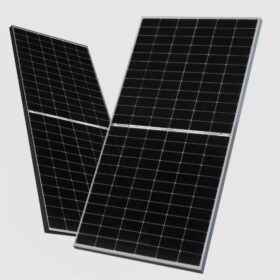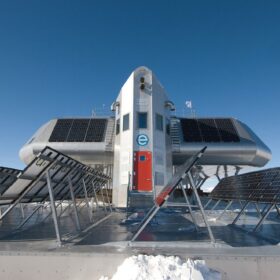Modular solar tech delivers international award for Australia’s 5B
Australian modular PV array manufacturer 5B’s preassembled and relocatable modular solar technology has been awarded international honours with the United States-based World Future Awards panel naming it the best solar solution in its clean tech category.
Sodium-ion battery fleet to grow to 10 GWh by 2025
Global demand for sodium-ion batteries is expected to grow to just under 70 GWh in 2033, from 10 GWh in 2025, at a compound annual growth rate (CAGR) of 27%, according to UK-based market research company IDTechEx.
Weekend Read: Cash pours in to rooftop solar
The growth of European rooftop solar continues this year, with innovative companies raising capital to develop the market. It’s an encouraging trend with the potential to accelerate rooftop solar adoption. pv magazine correspondent Valerie Thompson takes a closer look.
Interview: REC Group CEO highlights power density, sustainability in time of oversupply
High performance and low environmental impact are set to stand heterojunction module maker REC Group in good stead in the current buyers’ market, argues CEO Jan Enno Bicker. Speaking to pv magazine at Intersolar Europe last month, Bicker said that in the rooftop segment the benefits of the company’s Alpha HJT module series shine.
Study finds growing inequality in metal footprints of renewable power value chains
An international research group has investigated the flow of iron, copper, aluminium, and other precious metals from source to end-use destination in the renewable energy infrastructure value chain. It found significant imbalances that can be attributed to the continuous outsourcing of metal demand for the renewable power sector to developing economies.
Solar will be in ‘unassailable position’ as cheapest source of electricity
Solar levelized cost of electricity will reach less than $45 (USD 30) per MWh in 2050 as global capacity grows 22-fold, said DNV.
Panasonic introduces new generation home battery
The EverVolt home battery supports both DC and AC coupling for new and existing solar arrays.
Roof-integrated solar takes 44% less time to install on new construction
A time-motion study by United States Department of Energy’s National Renewable Energy Laboratory shows that retrofitting installations of roof-integrated PV takes 7% less labour time than standard solar installations. For new construction, the installation time drops by 44%.
Test shows higher yield, lower degradation for n-type solar modules
Research carried out by China‘s National Photovoltaic Quality Inspection Center shows that new n-type TOPCon modules are living up to their promise, outperforming the previous generation of p-type PERC products. Data gathered over six months from a fixed-tilt PV system showed that the n-type products produced 3.69% more energy, and also suffered much lower performance losses.
Weekend read: The world’s coolest solar
The world’s most efficient energy network, at an Antarctic research base, has had a solar upgrade, reports Tristan Rayner.
